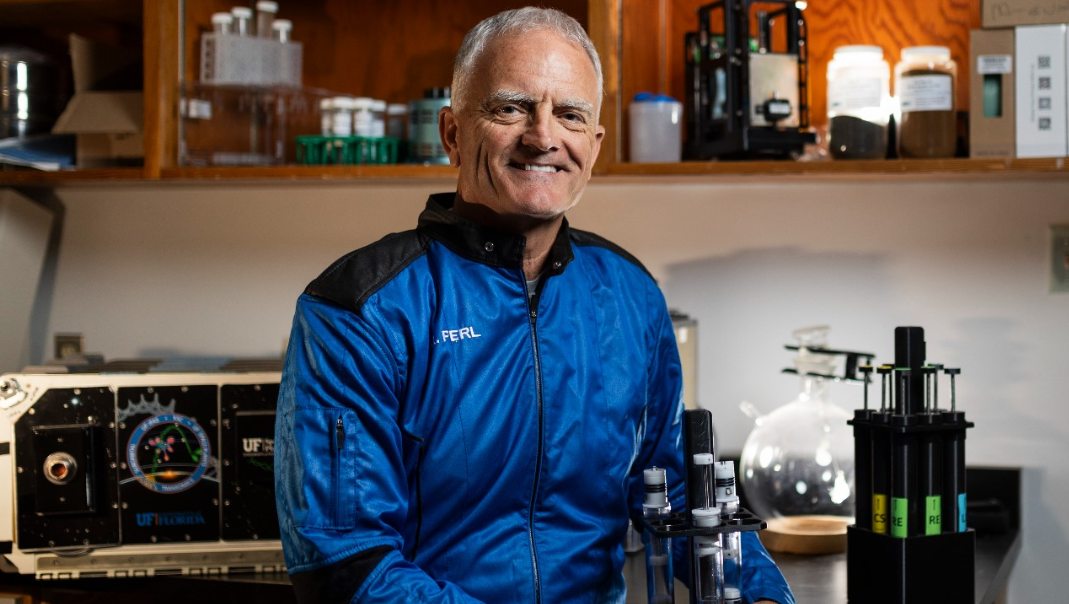UNIVERSITY OF FLORIDA SCIENTIST TO FLY ON BLUE ORIGIN SUBORBITAL MISSION
UNIVERSITY OF FLORIDA SCIENTIST TO FLY ON BLUE ORIGIN SUBORBITAL MISSION
University of Florida Distinguished Professor Rob Ferl will be the first NASA-funded academic researcher to conduct an experiment as part of a commercial space crew on an upcoming mission of Blue Origin’s New Shepard rocket.
Ferl, who is also director of UF’s new space institute, has spent his career studying how biology responds to spaceflight, progressing from experiments in his Gainesville lab to parabolic flight tests to projects on the space shuttle and the International Space Station.
Now, funded through a grant from NASA’s Flight Opportunities program, Ferl has an opportunity to personally conduct experiments on how the transition to and from microgravity impacts gene expression in cells and, more broadly, to develop protocols for future “researcher-tended” suborbital flights.
“The University of Florida is committed to the mission of space exploration and research,” UF President Ben Sasse said. “The discoveries that will result from this work will be breathtaking. We’re proud of Rob, grateful for our partners, and excited about the work ahead.”
Ferl and colleague Anna-Lisa Paul, also a professor of horticultural sciences, have spent their careers seeking to understand plant gene expression in microgravity, but most of their experiments have been done by astronauts in space. As Paul puts it, on launches to the space station, astronauts now generally fly separately from science payloads, meaning that science is done “in space” and not “on the way to space.”
Blue Origin’s New Shepard rocket offers scientists like Ferl the opportunity to conduct science…read more


